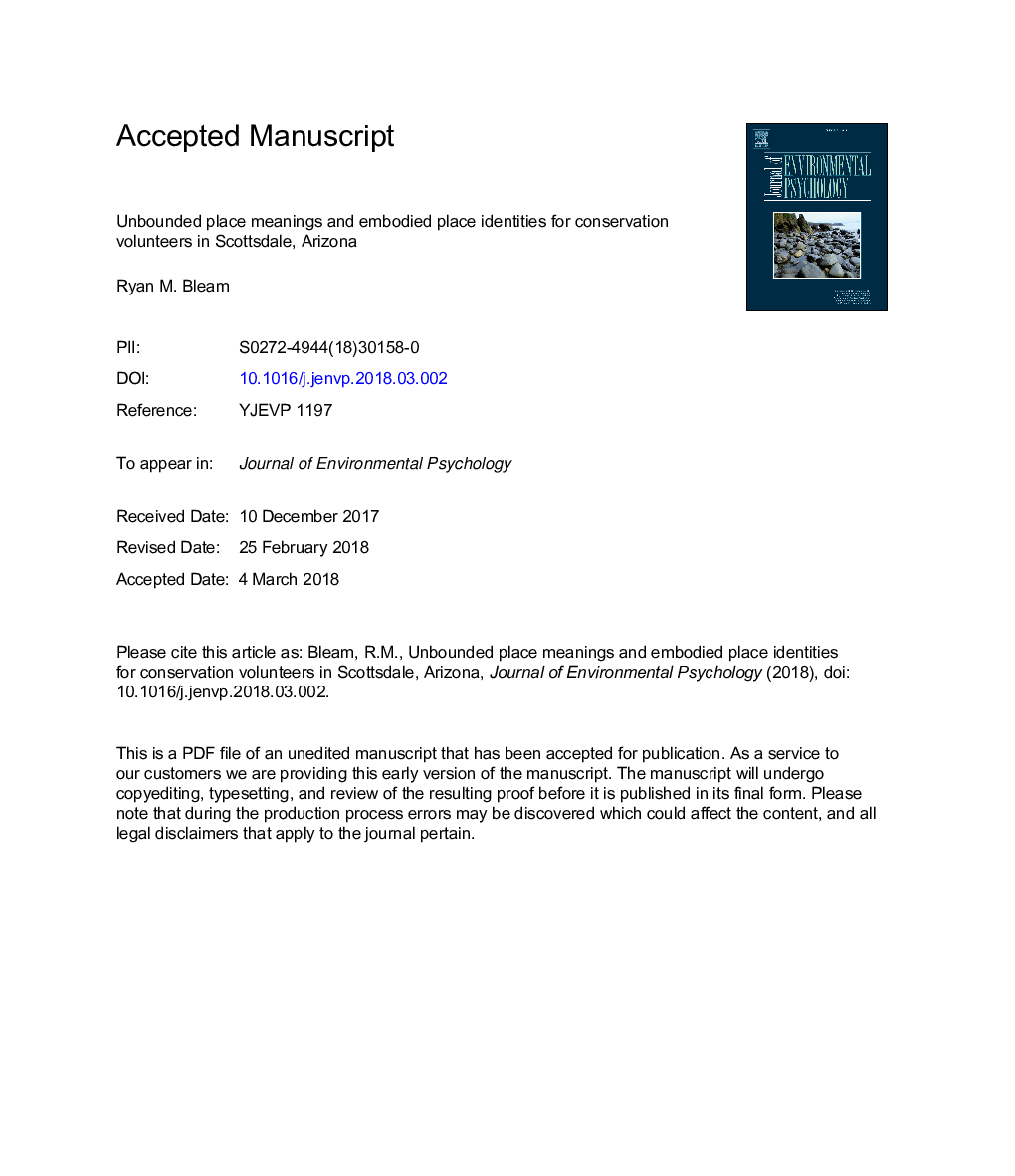| Article ID | Journal | Published Year | Pages | File Type |
|---|---|---|---|---|
| 7245210 | Journal of Environmental Psychology | 2018 | 29 Pages |
Abstract
Following Williams' (2014) call for a more thoughtful approach to the study of place meaning, the present study employs a phenomenological research paradigm to elicit deeply personal meanings formed through conservation volunteerism. A photovoice protocol (nâ¯=â¯18) and life history interviews (nâ¯=â¯53) explore meaningful places for volunteer “stewards” in Scottsdale, Arizona's McDowell Sonoran Conservancy. Inductive thematic text analysis reveals how these volunteers form identity-expressive meanings that transcend and traverse geographic place scales. Results suggest that the concept of place identity is more than a sub-construct of place attachment, and requires further theorizing as a phenomenologically-embodied experience. Nonprofits and municipalities can learn from the organization's success in fostering an environmental steward identity as a means of community building.
Related Topics
Social Sciences and Humanities
Psychology
Applied Psychology
Authors
Ryan M. Bleam,
